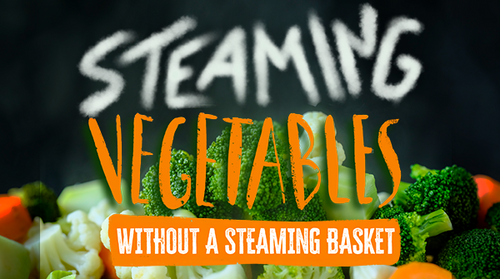When it comes to maintaining a healthy diet, fiber is often a key component that supports digestion and overall well-being. Among the many sources of dietary fiber, certain fruits and vegetables stand out not only for their fiber content but also for their rich nutritional profiles.
In this blog post, we’ll delve into the fiber content, nutritional benefits, buying and storing tips, and delicious ways to prepare artichokes, peas, raspberries, avocados and edamame.
Artichokes
Fiber Content: Half a cup of cooked artichoke hearts provides approximately 4.5 grams of fiber, contributing to digestive health and helping to regulate blood sugar levels.
Nutritional Highlights: Artichokes are also rich in antioxidants, vitamins C and K, folate and minerals like magnesium and potassium. They are low in calories and fat, making them a great addition to weight-conscious diets.
Buying and Storing: When buying artichokes, look for ones with tightly packed leaves and a vibrant green color. To store them, refrigerate unwashed artichokes in a plastic bag and use them within a few days for the best flavor and texture.
Preparation Ideas:
- Steamed Artichokes: Trim the outer leaves, steam until tender and serve with a lemon-garlic butter dip.
- Artichoke Salad: Combine cooked artichoke hearts with cherry tomatoes, olives and a light vinaigrette.
Peas
Fiber Content: Half a cup of cooked peas contains around 4 grams of fiber. Peas are also rich in protein, making them a valuable addition to vegetarian and vegan diets.
Nutritional Highlights: Peas are packed with vitamins A (as beta carotene), C and K, as well as B vitamins like folate and thiamine. They provide essential minerals such as iron, phosphorus and zinc.
Buying and Storing: Choose fresh peas with bright green pods. Refrigerate unwashed peas in a perforated plastic bag for up to a week. Frozen peas are also convenient and retain their nutritional value well.
Preparation Ideas:
- Pea Soup: Blend cooked peas with vegetable broth, garlic and herbs for a creamy soup.
- Pea and Mint Salad: Combine blanched peas with fresh mint, feta cheese and a lemony dressing.
Raspberries
Fiber Content: Half a cup of raspberries contains about 4 grams of fiber. These vibrant berries are not only delicious but also a great source of antioxidants.
Nutritional Highlights: Raspberries are rich in vitamin C and manganese. They also provide smaller amounts of vitamins E and K, along with essential minerals like potassium and magnesium.
Buying and Storing: Select raspberries that are plump, brightly colored and free of mold. Store them in a single layer in the refrigerator and wash just before eating to prevent them from becoming mushy.
Preparation Ideas:
- Raspberry Smoothie: Blend raspberries with yogurt, banana and honey for a refreshing drink.
- Raspberry Chia Jam: Cook raspberries with chia seeds and a sweetener of your choice for a homemade jam.
Avocados
Fiber Content: Half an avocado provides around 4.6 grams of fiber. Avocados are renowned for their healthy fats and are a versatile addition to various dishes.
Nutritional Highlights: Avocados are rich in monounsaturated fats, which are heart-healthy. They also contain vitamins E, C, K and B6, as well as folate and potassium.
Buying and Storing: Choose avocados that yield slightly to gentle pressure and have unblemished skin. To ripen avocados faster, place them in a paper bag with a banana. Once ripe, store in the refrigerator.
Preparation Ideas:
- Avocado Toast: Spread mashed avocado on whole-grain toast and top with tomatoes and a sprinkle of sea salt.
- Guacamole: Mash avocado with lime juice, cilantro, diced tomatoes and jalapeño for a classic dip.
Edamame
Fiber Content: Half a cup of cooked edamame contains about 4 grams of fiber. These young soybeans are a popular protein source and are packed with nutrients.
Nutritional Highlights: Edamame is rich in complete protein, providing all essential amino acids. It also contains vitamins C and K, folate, and minerals like iron, magnesium and calcium.
Buying and Storing: Look for frozen edamame in the grocery store or fresh edamame in the pod during the growing season. Store frozen edamame in the freezer for up to several months.
Preparation Ideas:
- Edamame Salad: Toss cooked edamame with bell peppers, cucumber and a sesame ginger dressing.
- Spiced Edamame: Sauté cooked edamame with garlic, soy sauce and a sprinkle of chili flakes for a flavorful snack.
Conclusion
Incorporating fiber-rich foods like artichokes, peas, raspberries, avocados and edamame into your diet not only supports digestive health but also provides a wealth of vitamins, minerals and antioxidants essential for overall well-being.
Whether enjoyed fresh, cooked or incorporated into various dishes, these nutritious foods offer delicious ways to boost your daily fiber intake and enhance your culinary repertoire. Next time you're at the market, consider adding these fiber-packed options to your grocery list for a healthy and satisfying diet.
IMPORTANT DISCLAIMER
The information in this blog is provided for educational purposes only and is not a substitute for consultation with a doctor or qualified healthcare professional. Consultation with a doctor or qualified healthcare practitioner is strongly advised, before starting any regimen of supplementation, a change in diet or any exercise routine. Individuals who engage in supplementation to promote health, address conditions or support any structure or function of the body assume all risks. Women who are pregnant, especially, should seek the advice of a medical doctor before taking any dietary supplement and before starting any change in diet or lifestyle. Descriptions of herbs, vitamins, nutrients or any ingredients are not recommendations to take our products or those of any other company. We are not doctors or primary-source science researchers. Instead, we defer to the findings of scientific experts who conduct studies, as well as those who compile and publish scientific literature on the potential health benefits of nutrients, herbs, spices, vitamins or minerals. We cannot guarantee that any individual will experience any of the health benefits associated with the nutrients described. Natural Organics will not be held liable for any injuries, damages, hindrances, or negative effects resulting from any reliance on the information presented, nor will Natural Organics be held accountable for any inaccuracy, miscalculation or error in the scientific literature upon which the information provided is based.
Like this article? You’ll love our weekly newsletter
sign up here!
**These statements have not been evaluated by the Food and Drug Administration. This product is not intended to diagnose, treat, cure or prevent any disease.











































































